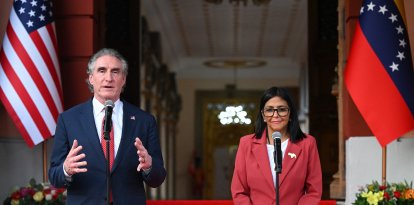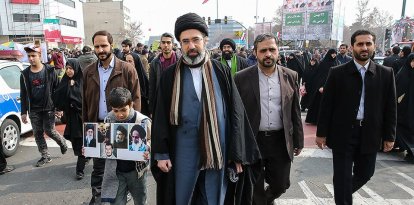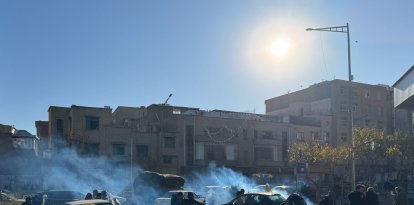Syrian rebels name Mohamed al-Bashir as political leader of the Syrian transition
The leader served as prime minister of the Syrian National Salvation Government, the civilian faction of the terrorist group HTS, and other militias in northern Syria until now.

Mohamed al Bashir
Rebel factions led by the Hayat Tahrir al-Sham (HTS) terrorist group have appointed Mohamed al-Bashir as the transitional head of government to govern Damascus until March 1, according to an official statement broadcast on Syrian television.
Until now, Mohamed al-Bashir served as the prime minister of the Syrian National Salvation Government (SSG), the rebel authority controlling parts of northern Syria and based in Idlib. The SSG is closely linked to and supported by the HTS terrorist group.
"The general command has entrusted us with the task of leading the transitional government until March 1," said Mohamed al-Bashir in a statement broadcast on television, which introduced him as the country's new prime minister.
A source from Hayat Tahrir al-Sham (HTS) told AFP that al-Bashir will lead "a government in charge of current affairs" until the constitutional process begins, at which point "a new government" will be formed, the source added.
This Monday, HTS leader Abu Mohamed al-Golani spoke with former Prime Minister Mohamed al-Jalali to 'coordinate the transition of power,' after both Parliament and the Baath Party, which ruled under Bashar al-Assad and his father Hafez, expressed support for the transition.
In statements to the Qatari news channel Al-Jazeera, sources close to the new Syrian government in Damascus confirmed that the transitional government will repeal anti-terrorism laws, dismantle the security services, and assess the situation of the army to reorganize it.
Integrist and Sharia doctor
Mohamed al-Bashir comes from a middle-class Syrian family. He was an engineer and worked as a skilled laborer for government agencies. When the civil war broke out, he joined the rebels and became close to Islamist groups. Throughout the conflict, he trained in Islamic law (Sharia) and held various positions in the rebel administration before being appointed prime minister of the opposition authority in Idlib.
According to several reports, including an in-depth, on-the-ground report by the Washington Post published in 2022, the Syrian National Salvation Government operates as a civilian extension of the HTS terrorist group. Despite this, both groups have declared their independence from each other.

World
The Assad dynasty in Syria: a history of violence, authoritarianism and corruption
Leandro Fleischer
The SSG was established in 2017 when HTS, and its previous incarnations under the Al Nusra Front banner, began to govern entire populations, providing services like a local government. The formation of the SSG is key to understanding HTS's shift toward more moderate positions to gain the support of international actors, such as Turkey, despite still being listed as a terrorist organization by most Western governments.
According to the analyses by the Washington Institute for Near East Policy, the SSG and its style of governance are characterized as authoritarian, violent, and based on Islamic principles and Sharia. It serves as a clear example of civilian rule under an Islamist government of jihadist origin in the Middle East.
Sources in the analysis argue that the SSG "is nothing more than a tool to provide the 'legal' and administrative frameworks for HTS to take control of the region's economy and resources."


























